
One of our main priorities is to ensure universal access to, and informed use of effective contraception. Millions of people lack the knowledge and information to determine when or whether they have children, and they are unable to protect themselves against sexually transmitted infections (STIs).
Articles about Contraception
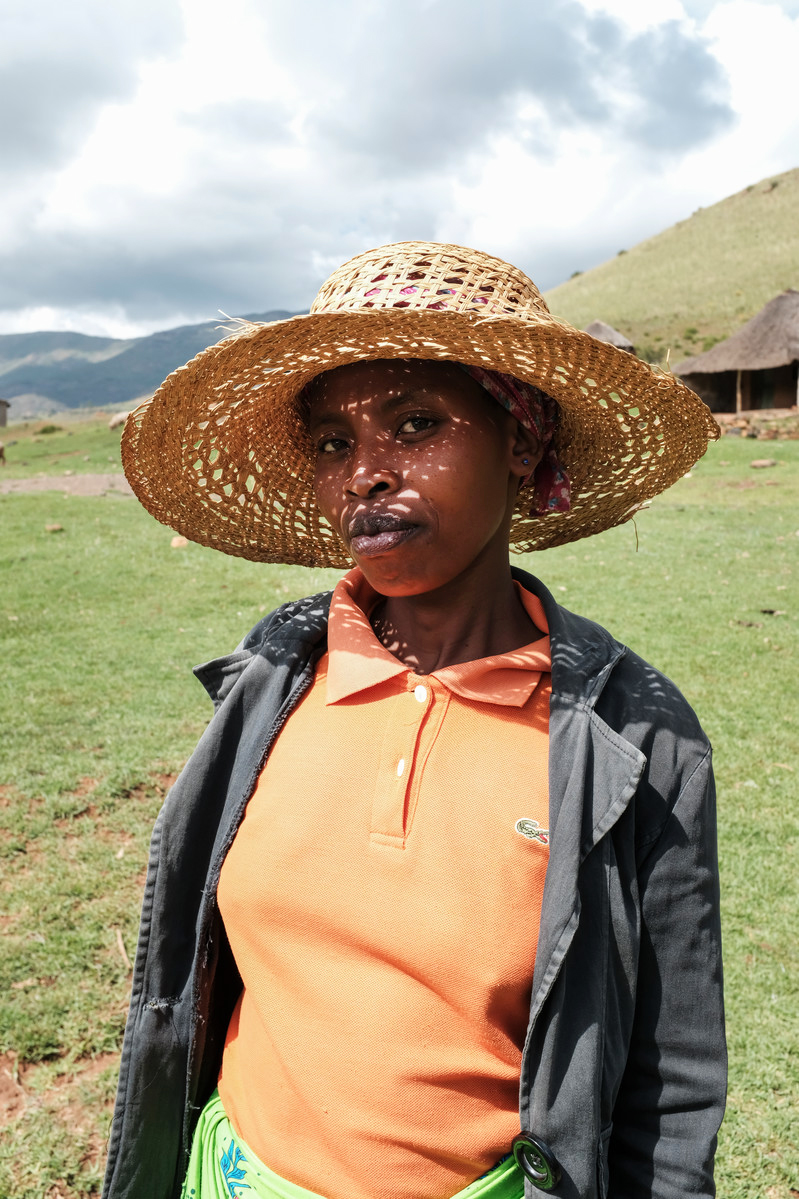
"This is a relief. I'm feeling very happy now that services have been brought”
"This is a relief. I'm feeling very happy now that services have been brought,” 34-year-old Makamohelo Tlali, says, smiling outside the Lesotho Planned Parenthood Association (LPPA) tent on the hillside of Hamoshati village in Lesotho. Makamohelo is a relatively new beneficiary of family planning services offered monthly at a post near her village. This is her second visit. She walks over 30 minutes each way but says that’s by far the best option for her. "I feel happy that services are here, for free. When I accessed them before it would take transport costs to get to the place." In the past, it would cost her 40 rand for taxis to the closest clinic, plus the additional cost of family planning services. Makamohelo first heard about these offerings from a peer mobilizer going door to door in her village. “I met her along the way and discussed the way I can access family planning services. They’re scarce this side. And she told me on a specific date there would be LPPA people offering services." “Now here I am,” she says, laughing. She takes advantage of the free HIV testing offered here as well and says she is hopeful the family planning will be maintained, mentioning that other NGOs have come and gone over the course of several years. For her and her husband, family planning is openly discussed in the household and important for the health of their current family. They have three children, 2 girls and a boy. “Three is enough! My husband has no problem with me accessing family planning here,” she explains, adding that her husband relies on piecemeal jobs while she farms to feed the family.

Think sexual health isn’t linked to climate change? Think again
When considering solutions to the climate change crisis, sexual and reproductive health services might not be the first thing to come to mind – but they could actually play a very important role in positive environmental strategies. Climate change is largely a result of over-consumption and production in some parts of the world (such as the US and Europe, who dominate in terms of cumulative emissions), while its effects are felt hardest in others. Further, in those hardest hit areas it is the already marginalized groups, including women and girls and those living in poverty, which suffer the greatest consequences. In this context, achieving sustainable development is crucial to help hard-hit communities become more capable of adapting to the changes brought on by environmental crises. Empowering women & girls 214 million women and girls who want contraception currently do not have access to it, and there are 99.1 million unplanned pregnancies a year globally. These two figures are undeniably linked and many countries with a high unmet need for modern contraception also happen to have a high vulnerability to climate change. When women and girls have children by choice rather than chance and can plan their family size as a matter of autonomy and dignity, they have improved health outcomes and are more engaged in their communities. Empowerment through education is also key as girls who are educated are likely to have fewer (and healthier) children later in life, and are better equipped at handling environmental shocks such as cyclones, floods and droughts when they strike. Building resilience for these situations by fulfilling the sexual and reproductive rights of women and girls plays an important role in a country’s ability to respond to climate-related challenges. What needs to happen? The Paris Agreement – the UN-led global effort to combat climate change that nearly 200 countries have signed up for – already includes a commitment to “the right to health”, of which sexual and reproductive health and rights are a crucial part. Furthermore, the Agreement highlights its obligation to gender equality and the empowerment of women. That’s why IPPF has joined up with other organizations to call on Paris Agreement signatories to acknowledge the importance of empowering women and girls through ensuring they have access to sexual and reproductive health services, and the key role this plays in national climate change strategies. It isn’t too late to reverse the impact of global warming but decisive action has to be taken now for it to be most effective, particularly for the world’s most vulnerable communities. It’s clear that the fulfilment of sexual and reproductive rights can play an important role in this – the global community simply needs to step up to the challenge. Read our position paper on the climate crisis and sexual and reproductive health and rights
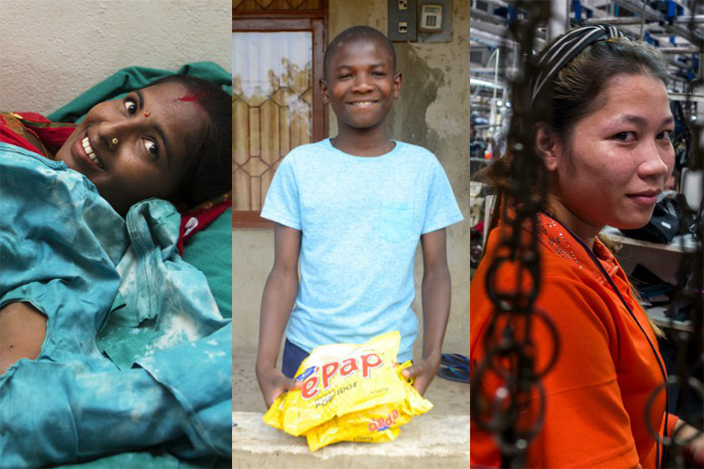
20 March: International Day of Happiness
Our Member Associations around the globe help bring happiness to people every day, by allowing them to access the sexual and reproductive rights they are entitled to. This International Day of Happiness, we’re sharing just a few of the stories of those who told us they were glad to be the recipient of IPPF services. "I’m so happy I now don’t have to worry about contraception for another 5 years" – Muna, Nepal Muna, now 21, got married when she was a teenager and soon had two children, a girl and a boy. She was keen to know more about her contraception options, particularly after flash flooding hit her country. IPPF Humanitarian, through the Family Planning Association of Nepal, were able to step in to help her. Read more about Muna "I am happy about life here" – Antonio, Mozambique 12-year-old Antonio moved in with his aunt after both his parents died from HIV-related illnesses. Antonio is also HIV positive, and with the help of IPPF Member Association AMODEFA, his aunt was able to tell him about it in an appropriate way, and to seek medication that best suited him. Read more about Antonio "I was very happy when my daughter was born" – Sineang, Cambodia After three years of marriage, garment worker Sineang had started to wonder why she hadn’t yet become pregnant. After noticing some vaginal discharge, she visited a Reproductive Health Association of Cambodia clinic to seek treatment, and for support on her journey to become a mother. Read more about Sineang
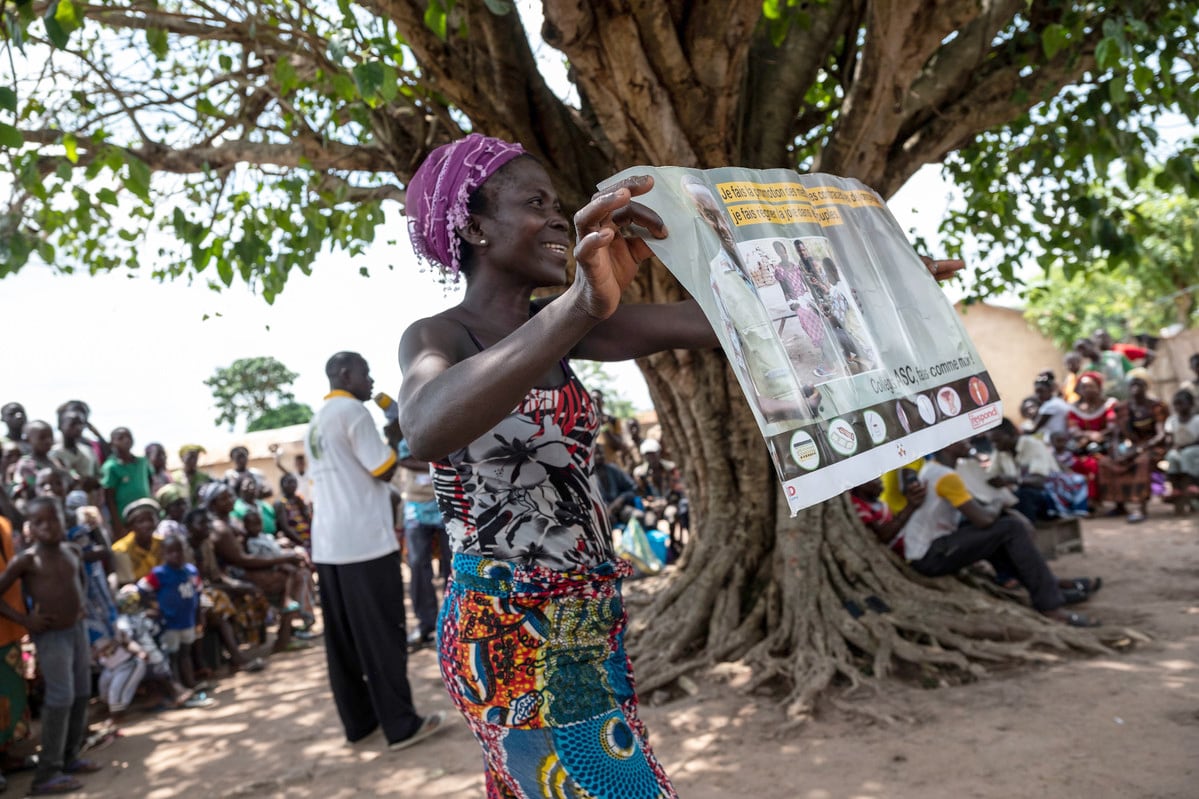
In pictures: Togo and the rise in contraception use
Félicité Sonhaye ATBEF Regional Coordinator The Association Togolaise pour le Bien-Être Familial (ATBEF), has led a pioneering programme training community health workers to administer contraception in the rural areas where they live. “The injection is used more than any other method. Around 60% of women use it,” said Félicité Sonhaye, ATBEF Regional Coordinator for Togo’s Plateaux region, which covers Ilama. “Women appreciate the reliability and long-lasting effects of the injection, which allow them to stop worrying about unexpected pregnancies”, Sonhaye added. Share on Twitter Share on Facebook Share via WhatsApp Share via Email Sossou Sagna Ilama village chief Men like Sossou Sagna, have great influence and respect within Togo’s rural communities. As Ilama’s village chief his approval was required for the ATBEF community project to take root. “I sent my own wife to seek family planning. The lady helped us and it worked really well. I also went with my older brother’s wife and she was very satisfied. Every member of this community is now aware that having a large family drives them towards poverty. Ignorance was the reason why we had so many children per family here before. Now with the family planning advice we have received, spacing births has become a reality and the reduction of the number of children per family.” Share on Twitter Share on Facebook Share via WhatsApp Share via Email Abla Abassa Community health worker Abla is a community health worker, and spends her days cycling around Ilama’s dusty streets visiting households that have signed up to an innovative programme providing contraception in hard-to-reach places. “Before, people didn’t have a lot of information about contraception. With the project the community is now able to space their births. I have seen the number of children per family going down. That’s contraception but also the increasing cost of living, and the fact that everyone wants to send their children to school.” Share on Twitter Share on Facebook Share via WhatsApp Share via Email Essivi Koutchona Client Facing prohibitive costs of school fees and food prices for six children, Essivi Koutchona, began using the contraceptive injection after deciding with her husband they did not want another child. She has received the injection every three months and has not experienced any side effects. “The community health worker passed by our house one day and explained the method and a bit about the possible side effects. We agreed as a couple that we wanted me to start using the injection.” Share on Twitter Share on Facebook Share via WhatsApp Share via Email Edem Badagbo Client 33-year-old Edem is a widowed father of three children. Edem hopes to have a vasectomy within the next month or so. His wife died following the birth of their third child but he is adamant he wants to follow through with a procedure they agreed upon before her death. “My wife agreed with the idea. I was scared when I first heard of it, but that’s because there was so little information available. When I came to the ATBEF clinic I received a lot more detail and that’s when I decided to do it. I have three children. That’s enough.” Share on Twitter Share on Facebook Share via WhatsApp Share via Email Yaori Ajossou Vasectomy client Yaori Ajossou, a retired soldier, heard about vasectomy while listening to an ABTEF awareness raising campaign on the radio. It prompted him to take on the responsibility for family planning in his marriage. “Before I had the idea that maybe I'd want to have more children, but after the campaign, and after my wife had talked a little bit about her health problems, I thought, well, maybe it's better to put the brakes on. I was about to retire. Why carry on having children? Six children is already a lot. It's already maybe too many.” Share on Twitter Share on Facebook Share via WhatsApp Share via Email Dede Koussawo Client 34-year-old Dede visits the ATBEF clinic in Lomé, Togo with her husband, Edem. “We do this together if his schedule permits it. I asked and he accepted. It's not typical (for men to come). Before the pregnancy, I was taking the pill. Before the first I was taking the pill and I used an IUD after my son's birth and after my daughter's birth as well. We've been really happy with the family planning we've got here so we decided to come here for Prescillia’s birth as well.” Share on Twitter Share on Facebook Share via WhatsApp Share via Email Mensah Awity Teacher and ABTEF youth club coordinator in Tohoun Mensah Awity is a teacher at a local school in Tohoun. He also coordinates the ABTEF youth club where they provide information and opportunities for the students to talk about sexual health, pregnancy, contraception. “At the beginning it was difficult for the club. Now teachers have started accepting the ideas and some pupils behave much better so it’s hard for them to keep condemning it. There are three girls who gave birth and who came back to school afterwards. At the beginning it was tough for them but we explained to the students that they shouldn’t be treated differently. The rate of pregnancy has definitely gone down at school.” Share on Twitter Share on Facebook Share via WhatsApp Share via Email Emefa Charita Ankouy Youth activist and student “I'm studying for a degree in English and I'm a young activist volunteer with the IPPF youth movement. We promote, we try to help young girls who are in education to have more information about sexual health and reproduction to help them to adopt a method to avoid a pregnancy. They don't have enough information about sexual health and reproduction. I think it's because of that that they've become pregnant. They want to have sex quite early. There is pressure and there's a lack of communication between the students and their parents. Here in Togo sex is taboo for everyone, above all for parents.” Share on Twitter Share on Facebook Share via WhatsApp Share via Email Evedoh Worou Community Health Worker, Ilama “The ones who prefer the pill are young students or apprentices. Often, they take it to reduce PMS, and it regulates their period. Sometimes women will forget to take the pill, which means the injection is preferred as it’s just once for three months. The women here have more autonomy and they now have the space to earn money themselves for the household as a result of the programme. At the beginning, there were some reservations among the men in the community but after our awareness campaigns, more and more of them accompany women for family planning.” Share on Twitter Share on Facebook Share via WhatsApp Share via Email Photography by Xaume Olleros for IPPF
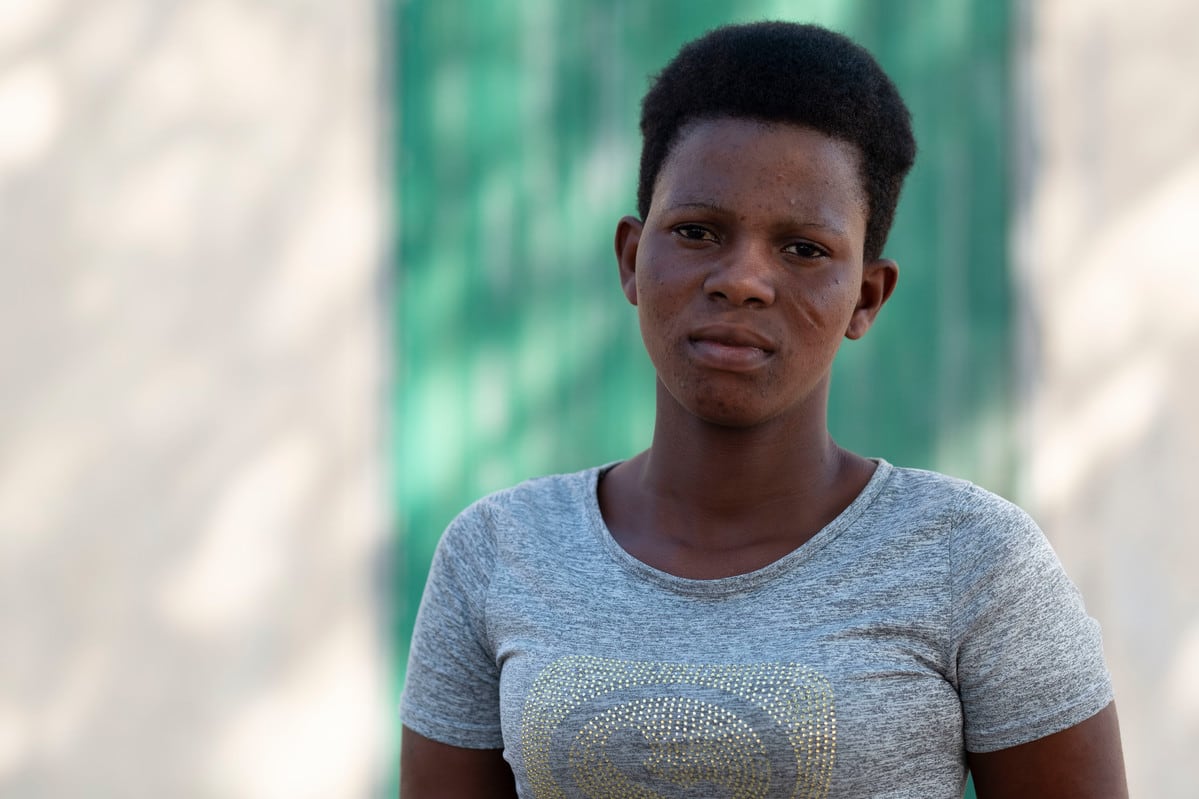
“I want to use it for a couple of years and then maybe we will think about having another child”
Every three months, Mawoula Dahide meets a community health worker in her village in central Togo to receive a single contraceptive injection and then carries on with her busy day. Dahide, 20, has a two-and-a-half year old son and a husband living in the capital and juggles an apprenticeship in tailoring with caring for her child. After recovering from the birth, Dahide tried the injection and immediately felt relief, knowing she would decide when she got pregnant again. “I want to use it for a couple of years and then maybe we will think about having another child,” she said. Lack of access Until 2013, Dahide and the other women living in the village of Ilama had no access to regular contraception at all, and its use was sometimes regarded with suspicion, and even fear. In her community, the average age of a mother’s first pregnancy is around 16, and women might bear a total of six or seven children compared to the national average of 4.7, according to local health workers. That trend is changing with a pioneering programme run by the Association Togolaise pour le Bien-Être Familial (ATBEF), which has trained community health workers to administer contraception in the rural areas where they live. ATBEF has focused their distribution of contraceptives within poor and rural communities, and with mobile outreach clinics that go to villages with no trained health workers. The unmet need for contraception in Togo stands at 34% of the population, and in rural communities, this is even higher. The association contributes a fifth of overall contraception cover to couples in Togo, a West Africa nation of 7.8 million people. There is a clear favourite among the methods offered, which include male and female condoms, the pill, and the contraceptive injection. “The injection is more used than any other method. Around 60% of women use it,” said Félicité Sonhaye, ATBEF Regional Coordinator for Togo’s Plateaux region, which covers Ilama. Women appreciate the reliability and long-lasting effects of the injection, Sonhaye added, which allow them to stop worrying about unexpected pregnancies. From client to advocate Dahide has become an advocate for the method among her peers within her community. “My friends are getting the injection as well. I was the first to start using it and it was great, so I told them about it,” she said. Another convert to the injection is Ilama’s village chief, Sossou Sagna. The father of seven agreed with his wife they didn’t want anymore children. “I sent my own wife to seek family planning. The lady helped us and it worked really well. I also went with my older brother’s wife and she was very satisfied,” Sagna noted in the cool of the shade. “My wife chose the three-month injection,” he added. Sagna had not anticipated some of the wider effects of increasing contraceptive use within the community, which have become prevalent over the last couple of years. “Every member of this community is now aware that having a large family drives them towards poverty,” he said. Families have more money to spend feeding and educating their children in an economy where the cost of living keeps rising. Villagers who see Sagna attending family planning sessions are also convinced that rumours about contraception making them ill are untrue. “Ignorance was the reason why we had so many children per family here before. Now with the family planning advice we have received, spacing births has become a reality and the reduction of the number of children per family,” he added. The gains of the ATBEF rural programme will now go even further with the imminent introduction of Sayana Press, a contraceptive injection that women can self-administer. Learn more about some of the most popular contraception methods available and if they are right for you Photography by Xaume Olleros for IPPF
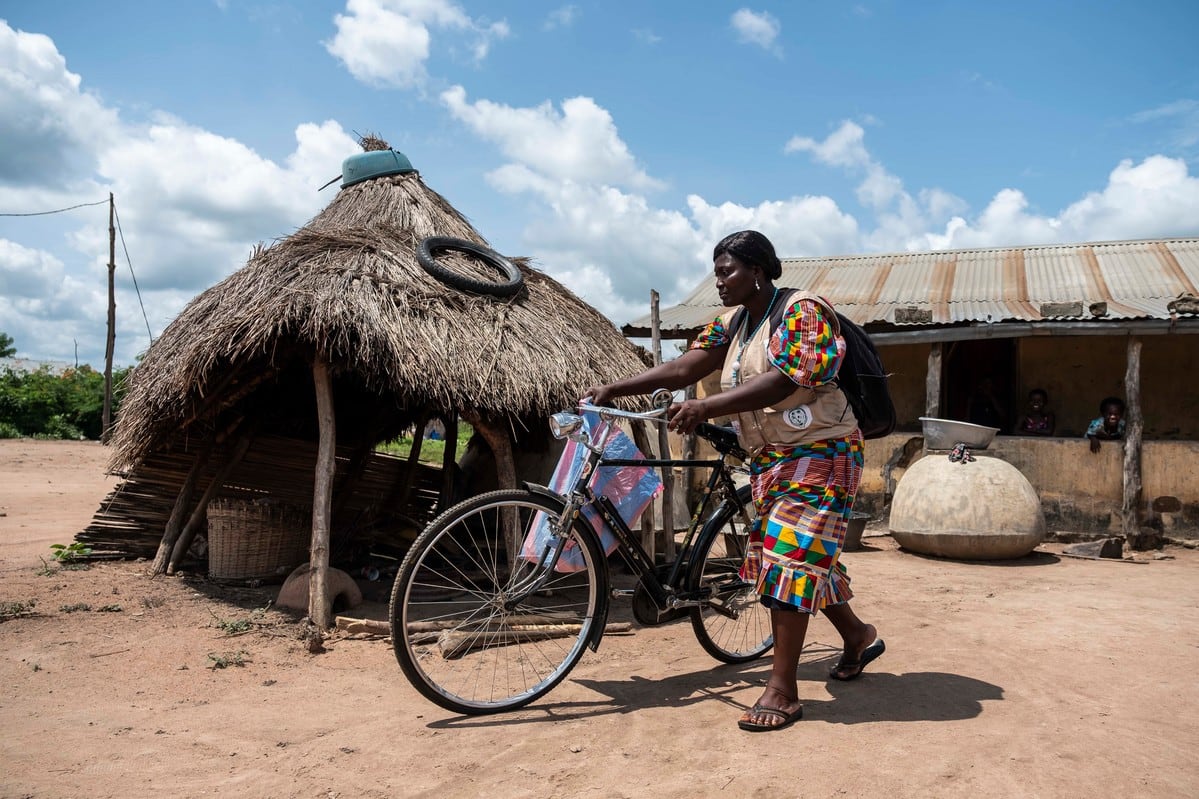
“Some of the young women can’t educate their own children because they had to drop out of school themselves”
Abla Abassa lives in the village of Ilama, population 2,000, in rural central Togo. After waking up early each morning to prepare for the day ahead, she sits down to map out her route. Abassa is a community health worker, and spends her days cycling around Ilama’s dusty streets to visit households who have signed up to an innovative programme that provides contraception in hard-to-reach places. The village is an hour by bumpy dirt track from the regional capital of Atakpamé, and few residents have the time or money to travel into town on a regular basis to refill prescriptions. For years, that meant the women of the community had just one form of protection against pregnancy: avoiding sex altogether. In 2013, Abassa became one of 279 community health workers in the Plateaux region funded by the Association Togolaise pour le Bien-Être Familial (ATBEF), working in two districts where the unmet need for contraception was greatest. Today, Abassa has three different clients, but can deal with as many as five a day. The health worker meets women on their own or with their husbands, and conversation flows about village life before she administers a contraceptive injection, or leaves behind a small pile of condoms. Reaching those in need She begins the day a few doors down at the home of Essivi Koutchona, a mother of six who has used the contraceptive injection for the last two-and-a-half years. “The community health worker passed by our house one day and explained the method and a bit about the possible side effects,” Koutchona said. “We agreed as a couple that we wanted me to start using the injection”. Koutchona’s husband, Konou Aboudou, credits Abassa and the ATBEF with improving his marriage, which he said was strained by the rhythm [calendar] method and supporting many young children at once. “Now we can better understand and support our wives. We avoid adultery and pregnancies are planned,” he explained. “Before, people didn’t have a lot of information about contraception. With the project we have undertaken with ATBEF since 2013, the community is now able to space their births,” Abassa said, adding the couple had told her they wished the programmed has started years ago. Togo currently has a fertility rate of 4.7 children per woman, according to the United Nations Statistics Division, but is trying to bring that number down. Battling misinformation The government faces entrenched attitudes about the value of a large family, and misinformation spread about contraception. A community health worker has two roles: safely providing contraception, but also reassuring women that many of the rumours they have heard that the injection or pill will make them sick are false. “I tell them that side effects come from the product, so if they have an irregular period it’s not because they are ill,” Abassa said, adding it had taken much persuasion over the last five years to reach the point where she was now trusted. Abassa’s next client preferred to meet at the health worker’s home for some privacy. At 45, Adjo Amagna is still having periods and wants to avoid any chance of another pregnancy. “I think I want to go for the injection. I have never used contraception before so I think I will do it for three months to see how it goes,” she said. After the death of her fifth child, the only baby she had with her second husband, Amagna wants to focus on caring of the four children she has left. She sat down with the health worker and was passed condoms, femidoms and the pill, while Abassa explained how the injection works. After a half hour chat, Amagna agreed to begin the injection on her next visit. Changes within the community On the way to see Mawoula Dahide, a 20-year-old with one child, her last client of the day, Abassa reflected on the changes she has seen in the community since her job began. “I have seen the number of children per family going down,” she said. “That’s contraception but also the increasing cost of living, and the fact that these days everyone wants to send their children to school.” The prevalence of contraceptive use was at 17% before the programme began, but with the focus on rural communities this has risen to 23% nationwide, even though not all areas of Togo are covered by dedicated health workers yet. We met Dahide in a quiet corner as she took a short break from an apprenticeship in tailoring. “It’s pretty tough balancing my son and my apprenticeship. If I had waited to have a kid before starting it would have been a lot easier,” she admitted. “My husband is studying at the university in Lomé so I only see him during the holidays and maybe a few weekends during term time.” Younger women like Dahide are sometimes harder to reach, said Abassa, and have a greater unmet need for contraception in a community where many have their first child around the age of 16. “Some of the young women can’t educate their own children because they had to drop out of school themselves,” the health worker explained, adding her focus was always on recruiting more teenagers to her cause. As she heads home for the day, Abassa waved to clients and neighbours, while wondering who might be on her doorstep looking for advice when she gets there. Photography by Xaume Olleros for IPPF
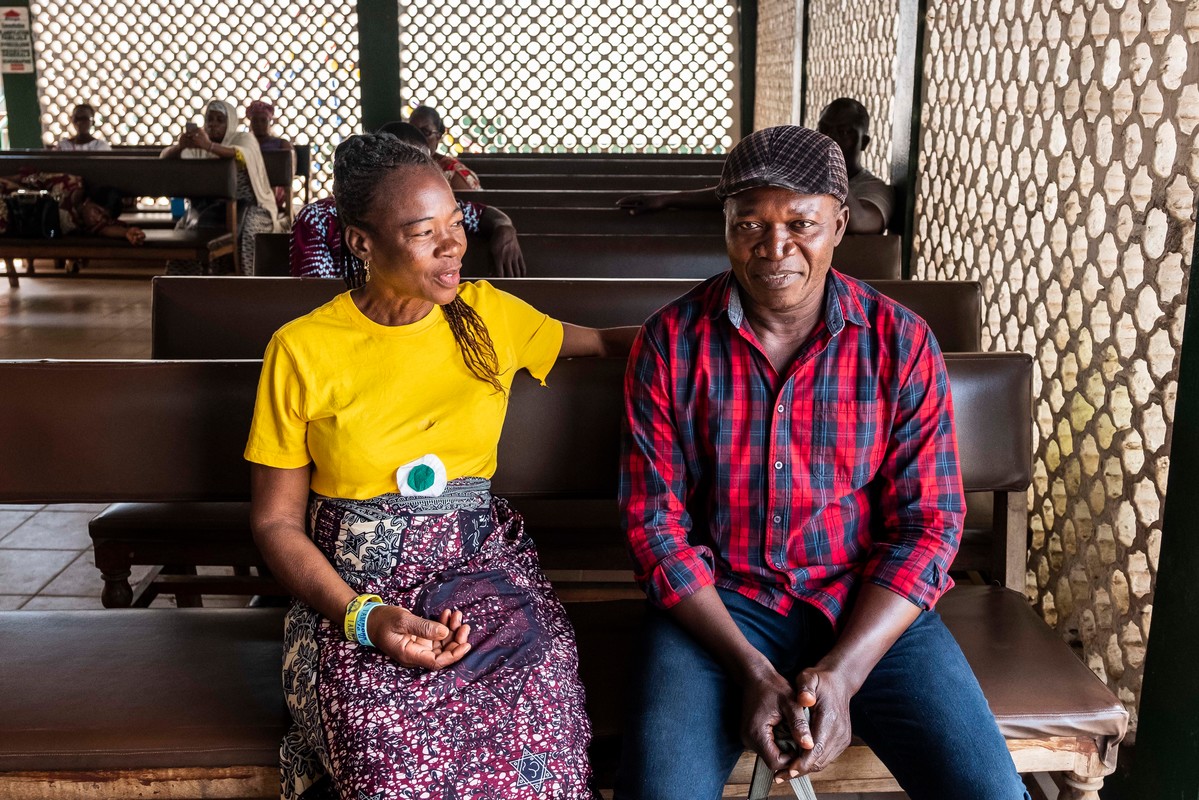
A rise in men seeking vasectomies in Togo despite cultural taboos
Yaori Ajossou was listening to the radio with his wife in Togo’s capital, Lomé, when the usual chatter turned to a topic he’d never considered: vasectomy. It was 2015 and Ajossou, then 53 years old, was on the point of retiring from his career in the military. He had idly wondered about having another baby – a seventh child – but after the programme, thoughts of his 42-year-old wife’s health problems started churning in his head. Making the decision “I said to her, why don’t we go and get some information?”, Ajossou recalled. The couple visited the Association Togolaise pour le Bien-Etre Familial (ATBEF) and asked the staff several questions: Would it hurt? Could they still have sex afterwards? Was it 100% effective? Yaori’s wife, Ami, had always taken the lead on contraception, but her fragile state of health was being exacerbated by side effects, and she was not ready to become a mother again. “I was taking the pill but it tired me out and I stopped taking it until I got pregnant again,” she sighed. “Then I took the implant, but it wasn't good for my heart. I had to take it out.” Ajossou opted for a vasectomy procedure soon afterwards. Men & family planning Radio campaigns are the primary way in which men in Togo hear about vasectomy in the local Mina language, and potential candidates have come trickling in following information campaigns by ATBEF – along with some of their wives and girlfriends. Sylvain Bingo M’Bortche, Chief of ATBEF’s Medical Division, said he was surprised by the number of candidates in a country where masculinity is prized, and large families remain a mark of pride and virility. “We thought men would not accept it but we quickly realised that there was an unmet need,” he said. “Men even come here from other countries, such as Benin, to benefit from vasectomies.” M’Bortche says the strategy is now to decentralize care to more rural areas of Togo, where access to healthcare is scarce and the lack family planning much worse. “We've trained service providers to provide this in the interior of the country, in Atakpamé and Kara,” he said. “Men aren’t implicated in family planning in these communities.” A shift in attitudes Today in Togo, 870 villages have signed up to plans incorporating sexual and reproductive health strategies, with outreach provided via community health workers and mobile clinics. Sometimes men want to keep having children for cultural reasons related to the higher status of boys, and end up with far more than initially planned. “I wanted three sons. But the first was a girl. The second was a girl. The third was a girl,” said Komlau Anaglavi, a 57-year-old Lomé native who owns a rock crushing company. Five daughters later, Anaglavi said he was ready to give up trying, saddled with the costs of feeding and educating his girls in an economy under pressure. “The cost of living today is really high. And if you want your child to succeed in their studies… you have to have money if you want them to go to good schools,” he said. His wife heard about ABTEF’s vasectomies and collected some information on her own, before asking her husband if he would consider it. After much talking, Anaglavi agreed, and since the procedure three years ago, he has become something of an evangelist. “Now I'm an advocate for it. I tell other people that they should get it done,” he said, adding he told them: “Sometimes you want to have sex and you don't have a condom nearby. The vasectomy is really clear and safe. It's not expensive”. He also stops misinformation spreading by pointing to his own experience, and has informed several men it is untrue that you can no longer have sex after a vasectomy. A generation for change A younger generation of men are now considering vasectomy earlier in life, reflecting trends in the city towards having a smaller number of children. Edem Badagbo’s wife died giving birth to their third child, but Badagbo, 33, said he is going ahead with the procedure to keep a promise they had already made together. “I came by to ask for information and they gave me a lot of it. I had decided to do it but unfortunately during the reflection period my wife then died, just a month ago,” he said. Left alone with three young children, Badagbo is now focused on giving them the best upbringing possible. “Better to have fewer children and be able to properly support them at school,” he added, wiping away tears. Photography by Xaume Olleros for IPPF
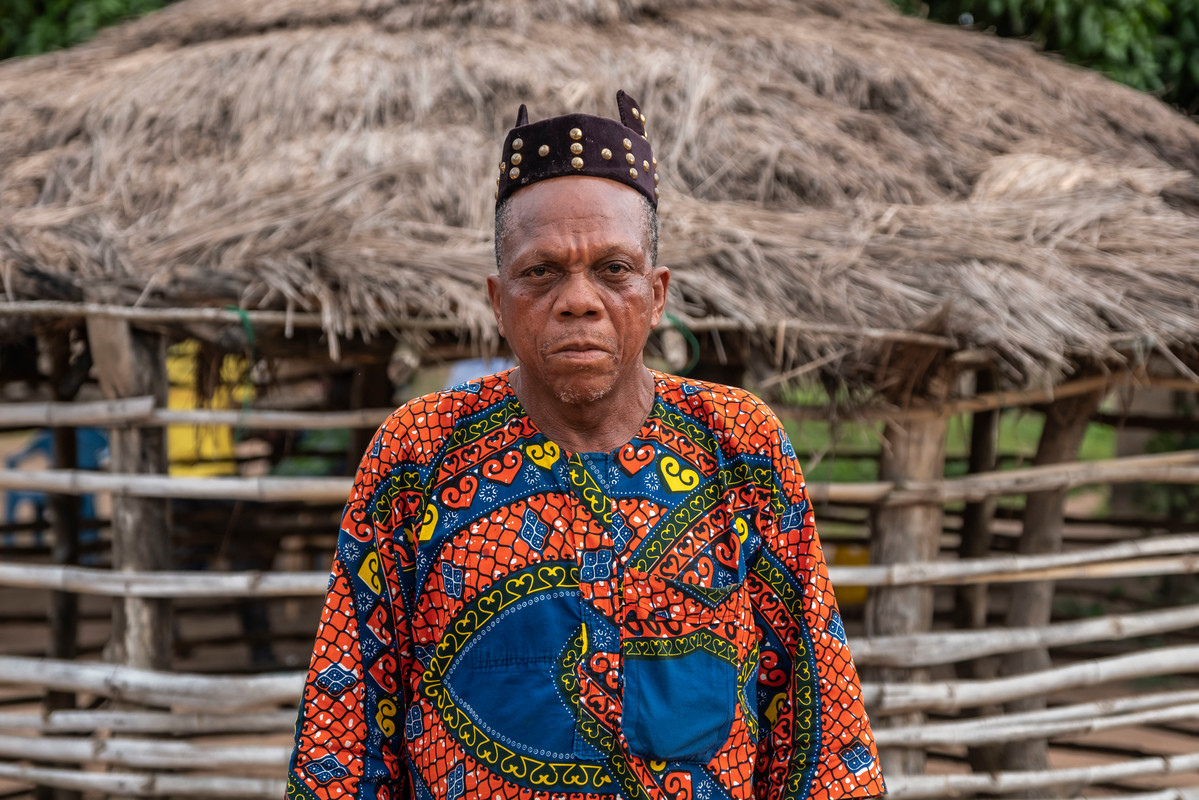
“I wanted to work with the parents so we can stop marrying off these girls too young”
Komi Agnimavo Amazoun becomes visibly angry when he recalls the phone call telling him a 16-year-old girl was to be married off from his village in central Togo. As the highly respected village chief of Detokpo, a community of a few hundred people, Amazoun had the final say on the union, which later turned out to be the result of an attempted cover-up of a rape. Forced early marriage “I saw that she was being married off too young. The parents came to see me and I said she was not the right age,” the usually softly spoken elder said. “She didn’t yet have an education or a job” and says the girl is now 18 and has started an apprenticeship in tailoring. Such successful interventions by village chiefs in ending forced early marriage reflects the crucial importance of their involvement in sexual health strategies in the country especially in rural areas. Detakpo is one of 870 villages which have signed Village Girl Protection Charters to stop forced transactional sex in rural communities, in an initiative promoted by the Association Togolaise Pour le Bien-Être Familial (ATBEF). The charters outline prevention measures and rules in line with Togolese law to stop the rape and exploitation of underage girls, who are particularly vulnerable outside urban areas where professional advice and protection are more easily reached. Working with parents Amazoun has also received training from ATBEF on the law, which bans marriage under 18 without parental consent, and on the use of contraception to prevent underage pregnancy. “We have started to raise awareness in the village so that similar cases won’t be repeated,” Amazoun said, sitting on a plastic chair outside his home. “I wanted to work with the parents so we can stop marrying off these girls too young,” he adds. Although the official rate of marriage under 18 in Togo stands at 22%, according to UNICEF, the true rate is likely much higher, as many weddings are village ceremonies that are never registered with the authorities. “This is a very traditional place with entrenched customs. The problem of sexual violence runs very deep, which means that we have cases upon cases to deal with,” explained Dopo Kakadji, the Director for Social Action in Haho Prefecture. Kakadji oversees sexual violence cases and child protection in the area, mediating disputes over marriage and providing a link between communities and the police when necessary. The future is looking promising In many households, he said, “the woman cannot make decisions for herself. She is an object that can be used as one likes. A father can exchange a daughter to resolve problems or for money”. However, his interventions, and the creation of youth clubs to inform children of their rights, has seen families increasing willing to denounce rapists publicly. “Today girls go to school. Things have changed in the last five years, because before the priority was to marry off daughters as soon as possible,” Kakadji noted. Photography by Xaume Olleros for IPPF
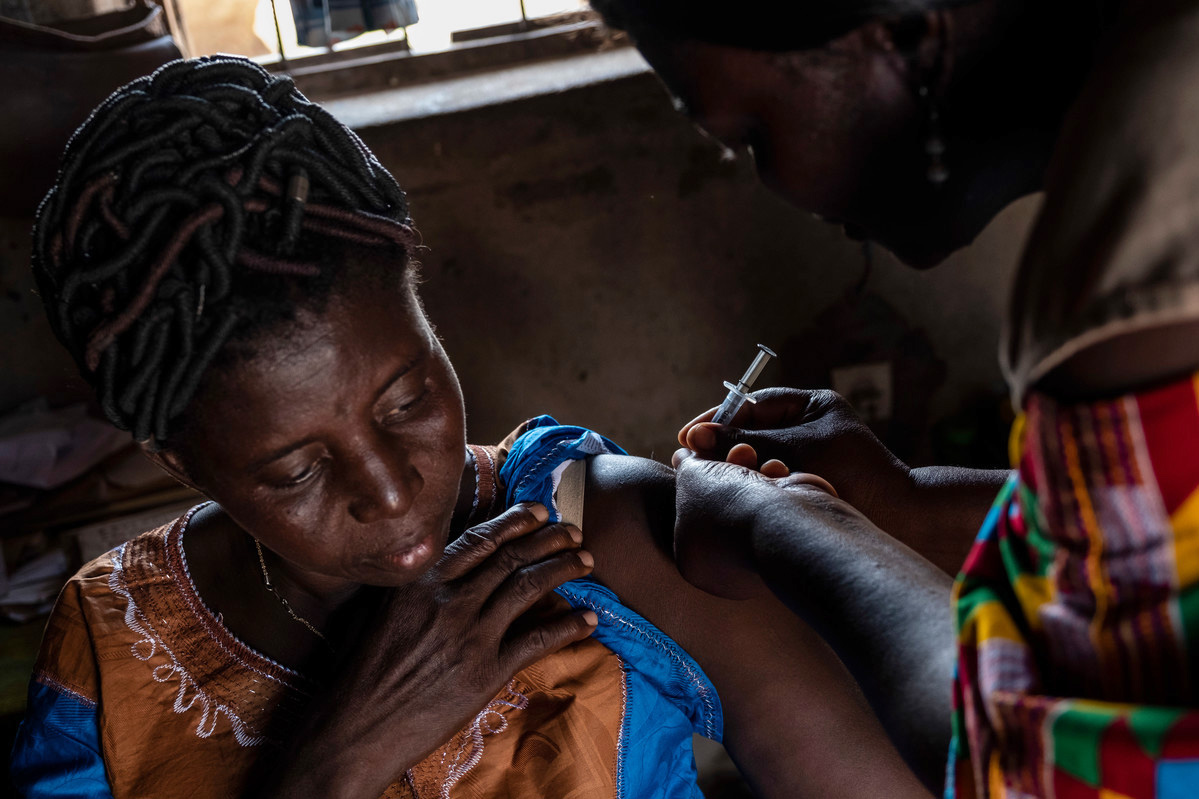
Togo: A country where contraception use is on the rise
Seated in an open-air classroom in the Togolese village of Tohoun, Adjo listens intently as her teacher leads a discussion about sexual harassment. At 13, Adjo is already aware of the dangers of teenage pregnancy and early marriage in her community and is learning how to handle boys trying to get her attention. “The boys really like chasing the girls and if you don’t know about that then you can get pregnant,” she said. “I want to finish my studies and have a boyfriend later.” Adjo is one of 410,000 young people who receive comprehensive sexuality education in schools and youth clubs in Togo, a country making huge strides in sexual healthcare provision. Youth & sex education Targeting youth in schools like Adjo’s is also a key focus. Young people have access to dedicated services at clinics in the country’s four regions, as well as outreach programmes for education and sexual healthcare, including HIV and STI testing in villages. “Last year there were about 15 girls pregnant, but since the ATBEF youth club started that has gone down a lot,” says 13-year-old Adjo. In Togo, 17% of young women will give birth before the age of 18. Through the Association Togolaise de Bien-Etre Familial (ATBEF), Togo now promotes the use of village charters to encourage the protection of girls from unintended pregnancy and gender-based violence. The decision of 870 villages to sign up to protection charters aimed at protecting girls and encouraging them to finish school has had a real impact. Men are taking an active role in the protection of women and young girls, and the delaying of pregnancy, through ATBEF’s village chief programme. “There have been problems with early pregnancy, but ATBEF encourages us to talk with young people, and to encourage them to use condoms,” explained Komi Agnimavo Amazoun, village chief of Detokpo, in central Togo. He intervened to stop a girl being forced to marry her rapist, a previously common practice in the area. “We have started to raise awareness in the village so that similar cases won’t be repeated,” Amazoun added. A rise in contraception use Togo, a nation of 7 million, has a fertility rate of 4.7 children per woman, according to the United Nations Statistics Division, but is aiming to cut it further. Since 2013, ATBEF more than 800 community health workers have been trained to advise and administer contraception nationally. ATBEF uses mobile clinics to reach rural areas and runs a successful clinic offering local men the option of non-surgical vasectomy - a rarity in the region. Based in the communities where they work, the health workers go door-to-door explaining the benefits of different contraceptive methods in local languages, building long-term trust. In the coming months, women will be able to administer contraceptive injections themselves in these communities, thanks to the introduction of the Sayana Press method. The prevalence of contraceptive use was at 17% before the community health worker programme began, a figure which has risen to 23% nationwide, according to government figures. “It’s no longer a taboo subject as it was in the 1980s, 1990s or 2000s,” explained Félicité Sonhaye, ATBEF Regional Coordinator for the central Plateaux region. “Today all women know about contraception, even if they don’t use it.” An increase in vasectomies Men in Togo are also increasingly considering long-term solutions to limit the number of children they support, especially while the country suffers an economic downturn. ATBEF is the only organization offering vasectomies in Togo and to date, 159 men have undergone keyhole vasectomy, despite strong cultural taboos surrounding men’s virility. “We thought men would not accept it but we quickly realized that there was an unmet need,” noted Sylvain Bingo M’Bortche, Chief of ATBEF’s Medical Division. “We have potential clients coming in and out [of Togo]. Men even come here from other countries, such as Benin, to benefit from vasectomies,” he added. Photography by Xaume Olleros for IPPF
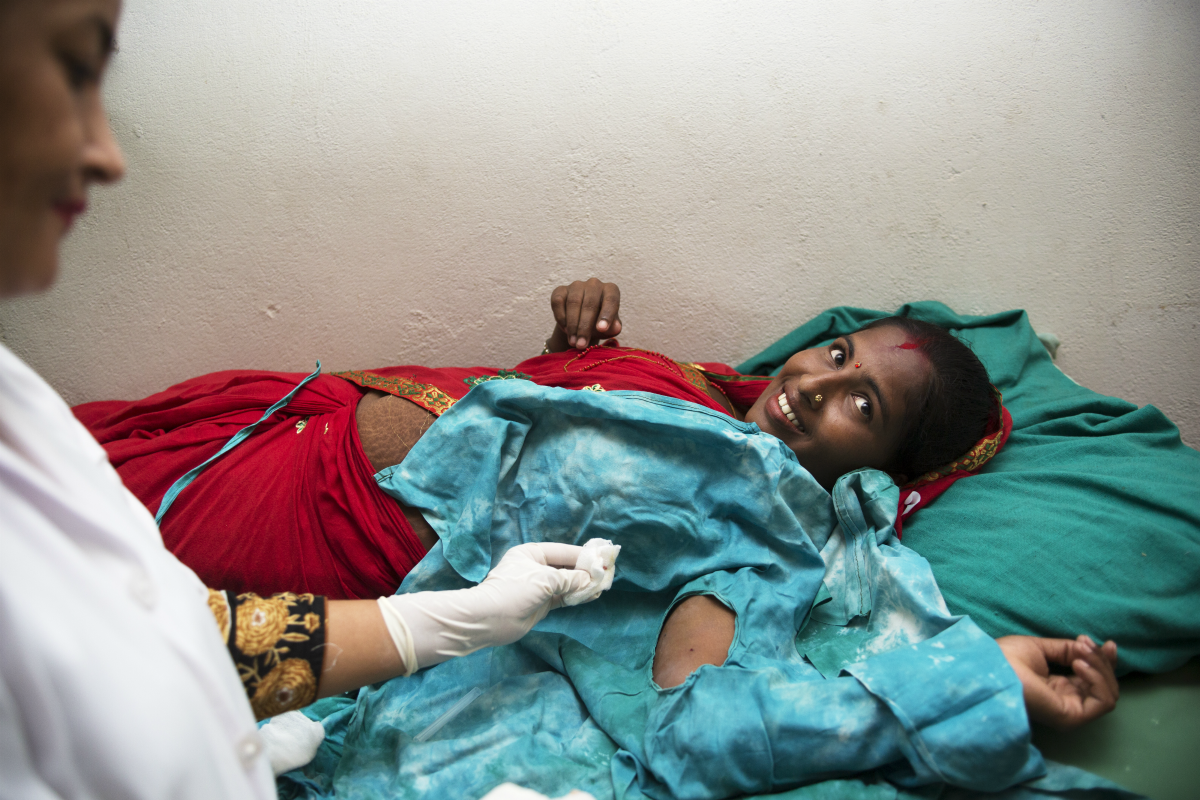
"I’m so happy I now don’t have to worry about contraception for another five years”
In August 2017, weeks of continued and heavy rainfall across Nepal resulted in flash floods and landslides that affected 36 of the 75 districts. Many people lost their homes or were displaced. It was estimated that of those affected, 112,500 were women of reproductive age, including 8,694 pregnant women. IPPF Humanitarian, through their Member Association, The Family Planning Association of Nepal (FPAN), activated its emergency response system early on. With funding support from the Australian Government, FPAN and IPPF Humanitarian initially mobilised their response in four of the worst affected districts (Sunsari, Saptari, Bardiya, and Dang). Mobile medical camps were established to meet the sexual and reproductive health needs of the affected population, including through the distribution of short and long acting methods of contraception, STI and HIV screening, and GBV referrals. In collaboration with the USAID-SIFPO project, services were then expanded into five more affected districts. IPPF Humanitarian spoke with 21-year old Muna in her home district of Sunsari in Nepal. “I got married at 16 years old and have two children, a four-year-old girl and two-year-old boy. In my caste, we get married early, so my parents took me to get an arranged marriage. I was in the 8th class at the time, and returned to school after I got married, but only lasted one year. My husband works in construction and had to stop working for two weeks when the floods came. When he doesn’t work, he doesn’t get paid, so it’s been very difficult. A FPAN social worker told me about the mobile medical camp today. I used to be on the three-month injectable but today I changed to the five-year implant in my arm. When my youngest child was eight months old I found out I was pregnant again. I decided to discontinue that pregnancy, so I took the five small tablets given to me by my neighbourhood doctor. I was two months pregnant at the time. From this, I had two days bleeding and cramp like pain, and then weakness. I decided to abort that pregnancy because my youngest will still only eight months old, and I didn’t want any more children. If I had more than two children, it would be very difficult to feed and educate them, and would badly affect my body too. I’m so happy I now don’t have to worry about contraception for another five years.” Want to know more about safe abortion access? Join IPPF'S I Decide movement
Pagination
- Previous page
- Page 6
- Next page






